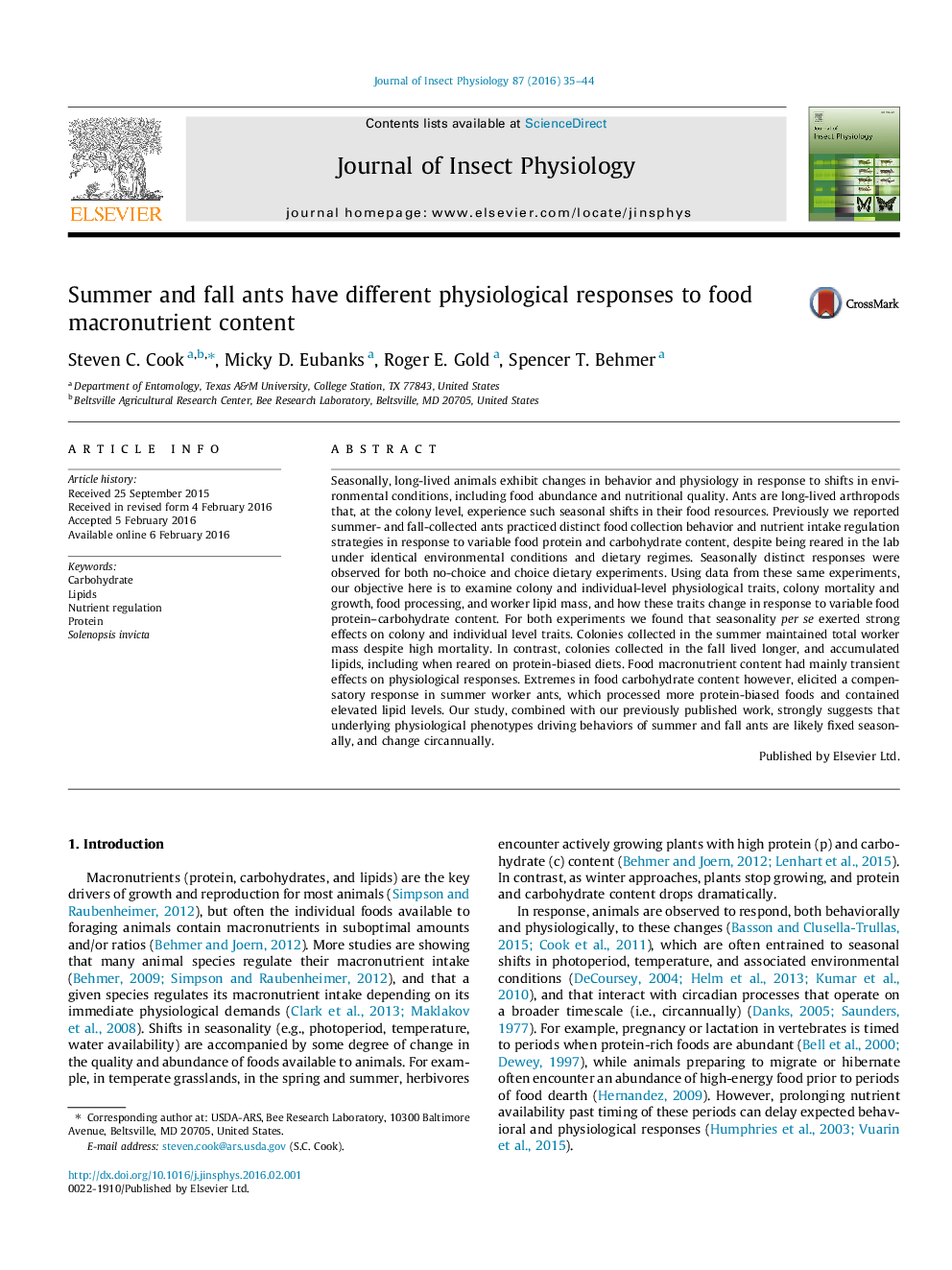| کد مقاله | کد نشریه | سال انتشار | مقاله انگلیسی | نسخه تمام متن |
|---|---|---|---|---|
| 5921467 | 1570983 | 2016 | 10 صفحه PDF | دانلود رایگان |
- Summer and fall fire ant colonies were collected and returned to the lab.
- Experimental colonies received food with different protein-to-carbohydrate ratios.
- Summer colonies had high mortality, but maintained numbers via high worker turnover.
- Fall ants gained lipid mass even when feeding on protein-biased foods.
- Fire ants show distinct seasonal physiological responses to food macronutrient content.
Seasonally, long-lived animals exhibit changes in behavior and physiology in response to shifts in environmental conditions, including food abundance and nutritional quality. Ants are long-lived arthropods that, at the colony level, experience such seasonal shifts in their food resources. Previously we reported summer- and fall-collected ants practiced distinct food collection behavior and nutrient intake regulation strategies in response to variable food protein and carbohydrate content, despite being reared in the lab under identical environmental conditions and dietary regimes. Seasonally distinct responses were observed for both no-choice and choice dietary experiments. Using data from these same experiments, our objective here is to examine colony and individual-level physiological traits, colony mortality and growth, food processing, and worker lipid mass, and how these traits change in response to variable food protein-carbohydrate content. For both experiments we found that seasonality per se exerted strong effects on colony and individual level traits. Colonies collected in the summer maintained total worker mass despite high mortality. In contrast, colonies collected in the fall lived longer, and accumulated lipids, including when reared on protein-biased diets. Food macronutrient content had mainly transient effects on physiological responses. Extremes in food carbohydrate content however, elicited a compensatory response in summer worker ants, which processed more protein-biased foods and contained elevated lipid levels. Our study, combined with our previously published work, strongly suggests that underlying physiological phenotypes driving behaviors of summer and fall ants are likely fixed seasonally, and change circannually.
152
Journal: Journal of Insect Physiology - Volume 87, April 2016, Pages 35-44
